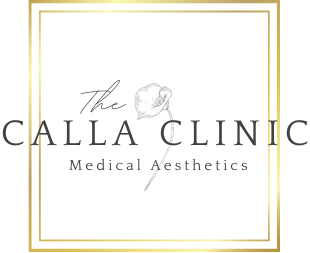What’s in Dermal Fillers?

Dermal fillers are becoming an increasingly popular non-surgical medical aesthetic treatment for men and women, but I often get asked “What’s in Dermal Fillers? And how do they work?”
Most dermal fillers contain Hyaluronic Acid – a naturally occurring gel-like substance that binds with water in the skin to add volume and hydration, cushioning and fullness to areas that have lost their youthful structure and definition. They are a popular and effective treatment for the following issues:
- Thinning lips and lips that have lost definition, as well as helping to fill and/or soften wrinkles around the lips (like smokers lines and marionette lines)
- Creating youthful definition around the jawline
- Re-shaping the nose without the need for invasive surgery
- Creating volume in the cheeks
- Tear trough rejuvenation to fill the hollows/dark circles under the eyes
As Hyaluronic acid is a naturally occurring substance, Hyaluronic Acid dermal fillers have extremely low instances of allergic reactions (a risk further reduced by ensuring that you find a medically qualified professional to administer the treatment, after a pre-treatment consultation that discusses a patient’s medical history). Some swelling, redness, bruising and tenderness can be experienced post-treatment, but these symptoms generally resolve themselves within a week. Generally, unwanted reactions are rare when dermal filler injections are administered appropriately by skilled, experienced and knowledgeable medically trained clinicians, but as with all injectable treatments, there is the potential for an adverse reaction – a risk that should be fully explained to all patients prior to any dermal filler treatment.
Benefits of Hyaluronic Acid
The effects of Hyaluronic Acid-based fillers have been shown to last for between 6-18 months, depending on the area treated and the type of filler used. In areas that are very mobile, like the lips, fillers break down more quickly and therefore follow up treatments may be required more regularly. Excessive sun exposure, alcohol consumption, and smoking can also increase the speed at which fillers break down.
The Right Treatment For You
Dermal Fillers aren’t suitable for everyone; they aren’t an appropriate treatment option for pregnant or breastfeeding women, for example, or for individuals with bleeding disorders or people being treated with blood-thinning medications. This is another reason why it’s so important to have a pre-treatment consultation with a medical professional in order to discuss your medical history, so that they can determine whether the procedure is a safe option for you and also so that they can ensure that it is the right treatment option to tackle your specific skincare concerns.
More Information
You can read about my Dermal Filler treatment here. For further information on Dermal Fillers, or the treatment process that I offer, please don’t hesitate to get in touch.
